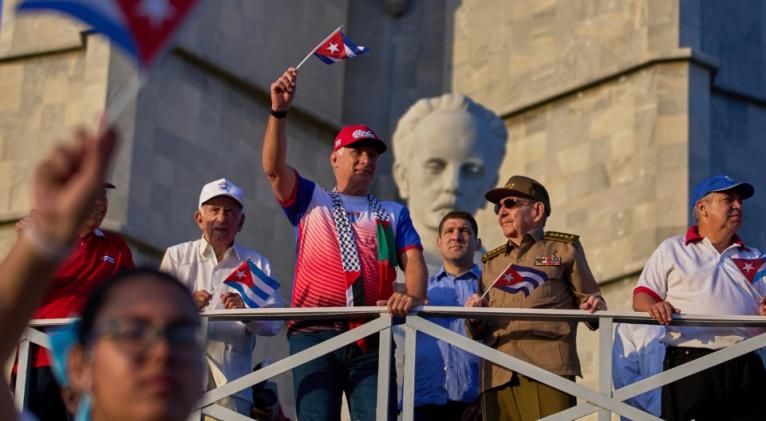New English-language book of Cuban President Miguel Díaz-Canel’s speeches
especiales

As many readers will no doubt be aware, Miguel Díaz-Canel is the president of the Republic of Cuba as well as the First Secretary of its Communist Party. He’s also the author of a new book from 1804 publishers entitled, Fighting for Cuba! Fighting for Socialism!
This small book, more of a pamphlet really, collects five of Díaz-Canel’s speeches from September 2023: one from the Havana summit of the Group of 77 (G77) and China, and four from his subsequent visit to New York at and around the General Assembly of the United Nations.
It’s a bit odd to review a book published in October 2023, but while President Díaz-Canel has been in office since 2019, this is the first and only English-language publication of any of his speeches or writings.
It marks a very particular moment in time—one which, despite being not yet two years ago, seems so distant—as just one month after these speeches, the world was rocked by the October 7 attacks and the ensuing genocide in Palestine. Geopolitics has not looked the same since, but this collection of speeches gives us a glimpse back into that time, through the very particular path of the Cuban president.
First off, any set of speeches by a top leader that takes place over such a short period of time will contain some repetition, and unless the editors were to take some significant liberties, these are rather inevitable.
That said, one can glimpse the main messages which Díaz-Canel is putting forward: the indefensibility of the current global economic order which concentrates extreme poverty in the “South” (the expression he uses the most), the opposition to the U.S. blockade of Cuba, and the value of Cuba’s socialist system, which values social progress over profit and exploitation.
Three speeches are from more formal settings with world leaders and two are “among friends,” notably at the Malcolm X and Betty Shabazz Memorial and Educational Center. The difference in tone and political slant is obvious, which to a certain degree shows the difference as well as the continuity between Cuba’s role in international multilateral politics versus within the left more broadly.
Ultimately, this collection is quite short and leaves the reader wanting more—more about Cuba, more about its socialist model, more about its current problems and its strategies to address them, more about Cuban internationalism.
Credit to the publishers for being the first to release Díaz-Canel in English, and here’s hoping for much more to promote Cuban socialism and Cuba’s leadership on the world stage.
Fighting for Cuba! Fighting for Socialism!
Miguel Díaz-Canel Bermúdez














Add new comment